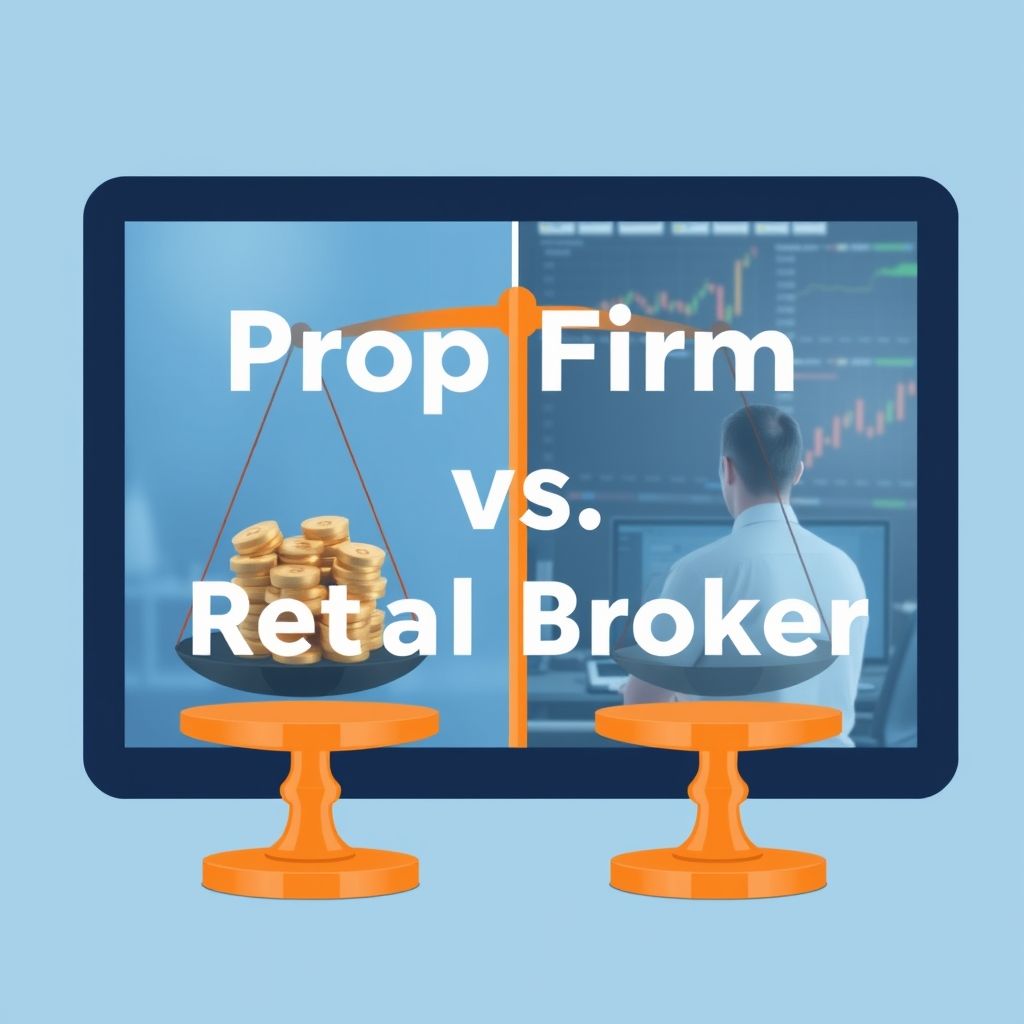Prop Firm vs Retail Broker: What’s Better in 2025?
In 2025, traders face a pivotal decision that directly affects their potential for success: prop firm vs retail broker. Both offer access to the financial markets, but they operate under fundamentally different models. Understanding their differences is essential for aligning your trading strategy with the right environment.
Whether you’re looking to scale quickly, protect your capital, or trade with full independence, this guide will help you make the right choice for your journey this year.
What Defines a Prop Firm and a Retail Broker?
Prop firm: A proprietary trading firm funds traders with its own capital. To access this funding, traders must typically pass an evaluation or challenge. Once funded, profits are split between the trader and the firm.
Larsa Capital, a respected name in this space, supports traders worldwide with real capital, fast payouts, and a transparent structure.
Retail broker: This model involves trading with your own money through a broker’s platform. You deposit your capital, manage your own risk, and retain full control over your profits—and your losses.
Prop Firm vs Retail Broker: Core Differences in 2025
Capital Access and Leverage
Prop firms allow traders to access substantial capital without large personal investment. Upon passing the evaluation, you can trade accounts worth tens or even hundreds of thousands of dollars. Retail brokers, however, limit your trading power to your own deposit, and regulatory limits often restrict leverage.
Risk Exposure
One of the biggest advantages of prop firms is limited personal risk. Since you’re trading with the firm’s money, your financial exposure is low. Even if you fail the challenge, the loss is limited to the entry fee. With retail brokers, you’re risking your own capital. Poor risk management can result in complete account losses.
Profit Retention
Prop firm traders share a portion of their profits with the firm—usually between 70% and 90%. Larsa Capital, for example, offers one of the most competitive payout structures in the market. Retail brokers let you keep 100% of your profits, but you assume all the risk and costs.
Trading Rules and Flexibility
Prop firms often apply rules to manage their capital. These can include daily drawdown limits, maximum loss thresholds, and minimum trading days. While these rules protect the firm, they can also help traders develop discipline. Larsa Capital strikes a balance between control and trader freedom.
Retail brokers offer maximum flexibility. You can trade any instrument, at any time, with no imposed rules outside of general regulations. However, this freedom can lead to impulsive decisions if you’re not disciplined.
Which Model Supports Faster Growth?
If you’re an ambitious trader with limited funds, a prop firm gives you the opportunity to scale quickly. You get access to large capital with minimal financial risk and a structured path for growth.
Retail brokers are more suitable for self-funded traders who already have capital and experience. You retain full control, but also take on full risk, which can slow your growth if markets turn against you.
Costs and Profitability
Prop firms usually charge a one-time evaluation fee. Once funded, your only cost is the agreed profit split. This makes them cost-effective for traders who want access to large capital without upfront investment.
Retail brokers can carry a range of ongoing costs—commissions, spreads, swaps, and platform fees. These can impact profitability, especially for high-frequency or long-term traders.
Emotional Edge: Mindset and Psychology
Prop trading creates a psychologically safer environment. You’re trading firm capital, which helps reduce emotional pressure and encourages you to focus on strategy and discipline.
In contrast, retail trading places your own money at risk. This can lead to emotional trading decisions like revenge trading or overleveraging, especially for beginners.
Why More Traders Are Choosing Prop Firms in 2025
The trend toward prop trading is growing rapidly in 2025. Lower entry barriers, fast funding access, and advanced evaluation systems make prop firms an attractive option. Firms like Larsa Capital are redefining how traders scale by offering real capital, clear rules, and consistent payouts.
Combined with the rise of remote trading platforms and global accessibility, prop firms now provide a strong alternative to traditional retail brokerage models.
Choosing Between Prop Firm vs Retail Broker: Final Verdict
There’s no single answer to the prop firm vs retail broker question. The right choice depends on your:
-
Experience and confidence
-
Capital resources
-
Risk appetite
-
Trading goals
-
Need for structure or freedom
If you want to grow quickly, reduce your financial exposure, and access large funding with support, a prop firm like Larsa Capital is the clear choice.
If you’re a highly experienced trader with sufficient capital and a preference for full autonomy, a retail broker might suit you better.
Ready to Scale Without Risking Your Own Capital?
Join thousands of traders who’ve partnered with Larsa Capital in 2025 to unlock real funding, generous profit splits, and a proven growth path.

